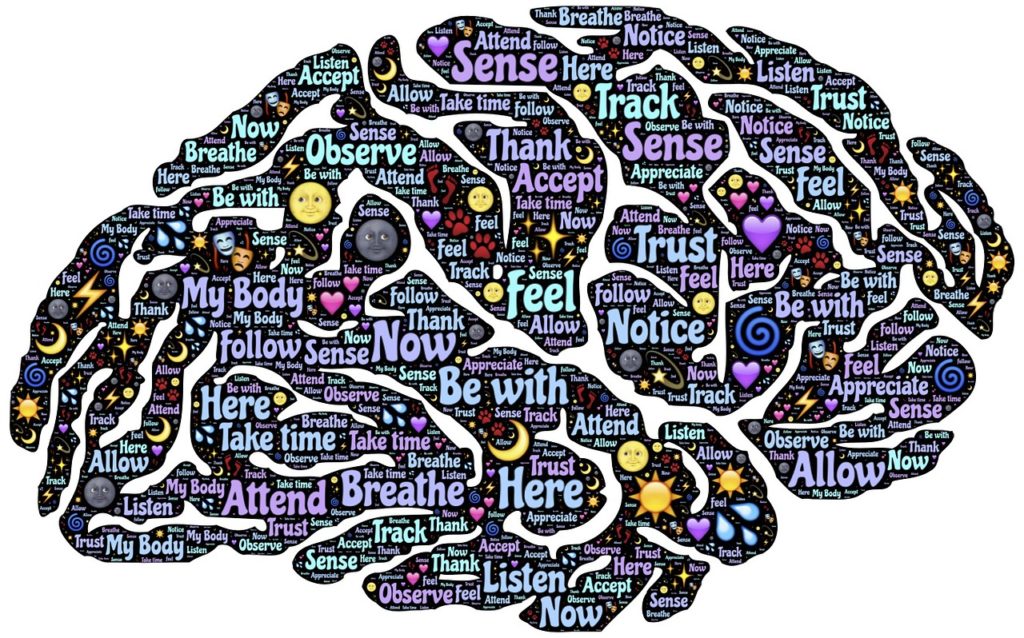…get to know thy Elephant!
Why learn about – and get to know –
your Elephant (i.e., your sub-conscious self)? At least three good reasons:
Because…what you believe, and value, and stand for – which is your Elephant – is why you feel and react the way you do…
Because…what’s “in” your Elephant – those beliefs, biases, fears, desires – determines what you’re going to feel in the next few moments…and minutes, and hours, and days to come…; and,
Because…if you want to make your life better (and also the lives of others) it is what your Elephant knows – and thus what you are able to do – that will make it so.
________
First, however, in getting to know your Elephant, it’s important to understand what it means “to know” – because, as the metaphor implies, the Rider and the Elephant are two different parts of your mind (!) and what each part knows or wants is not always the same – or, shall we say, not always congruent.
You know what your Rider knows because of your thoughts. That is, you can cite facts, arguments, or confirming evidence; and – as may sometimes be necessary – you can communicate what you know to others, using language to identify and describe or defend what you know and why you know it. (For example: Your name; another person’s name; that the Earth is round; how to play a video game; how to drive a car or play a guitar; judgments you make about others; or why you decided to do this instead of that…)
You know what your Elephant knows because of your emotions. That is, what you’re feeling is the Elephant’s assessment and reaction to what is happening to you “in-the-moment,” or has happened, or what your Rider might think will happen; and this is based on what your Elephant believes about yourself and about the world and about how it works or should work. (For example: Feeling confident, as when you know you can do something; feeling sad, like at the loss of someone you loved who is gone; feeling anxious, say, on a first date or starting a new job…)
But, again, what the Elephant knows and what the Rider “thinks it knows” are not always the same…and thus you may feel conflicted, confused, or uncertain. (For example: The E wants that dessert but the R thinks “No, not healthy and I don’t want to gain weight…”; or, the R knows that flying is statistically one of the safest activities you can engage in but the E is still afraid because it knows it’s not absolutely 100% safe; or, the R wants to buy that “whatever” but the E worries because it knows you can’t afford it…)
Yet there is one more critical point about all this “knowing” – what the Elephant knows IS NOT ALWAYS TRUE, OR ACCURATE, OR VALID; and, consequently, what you’re feeling is likely wrong or mistaken or delusional…
But then, also, what your Rider knows IS NOT ALWAYS TRUE, OR ACCURATE, OR VALID; that is, at the conscious Rider level, it is often a case of being – to some greater or lesser extent – ignorant, misinformed, and/or biased (and therefore blinded); and consequently, what you’re thinking – what you think you know – is wrong.
________
So, in sum, three important points about knowing:
One knows what the Rider knows by the thoughts we’re having and one knows what the Elephant knows by the feelings we’re having.
While most often what the Rider knows and what the Elephant knows are the same (ie, thoughts and feelings are congruent), they are not always (which is, psychologically speaking, a kind of cognitive dissonance).
Neither the Elephant nor the Rider are “infallible” – that is, one or both may “hold” erroneous, inaccurate, or delusional beliefs.
________
Okay, so how do I “get to know” my Elephant? Or, actually, how does my Rider (the conscious, self-aware part of me) get to know my Elephant (ie, that sub-conscious – and therefore usually “hidden” – part of my mind where so much is “held” and so much is going on, not the least of which is making me feel the way I do)?
By (your Rider) learning how the Elephant has been, and is, “trained” (ie, taught, educated, conditioned, even traumatized), and
By learning and engaging the cognitive Rider skills of self-awareness and introspection (ie, processing),.
_______________________________
*Elephant/Rider Model: The Happiness Hypothesis, Jonathan Haidt, 2006.

